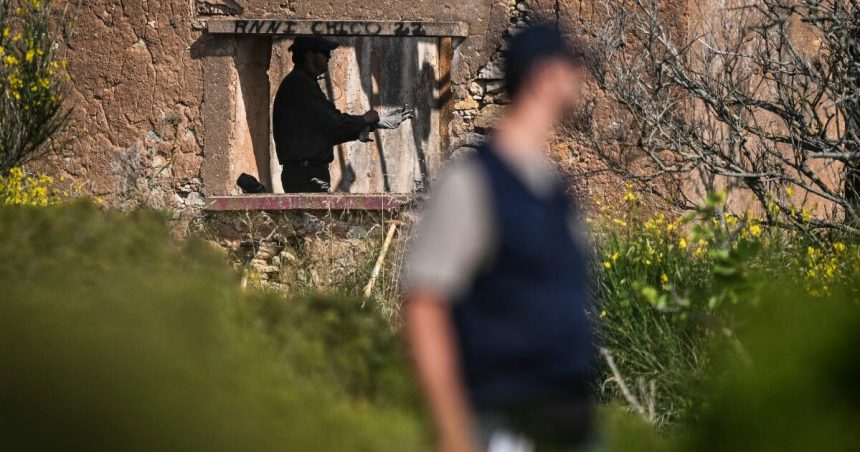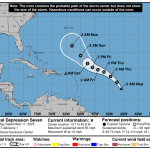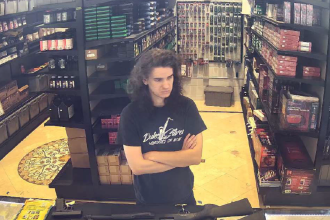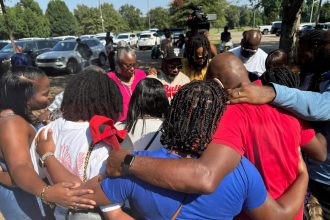The top suspect in the 2007 disappearance of British toddler Madeleine McCann in Portugal was freed from a German prison on Wednesday, an AFP journalist at the scene reported.
Christian Brueckner, 48, had been serving a seven-year term at Sehnde prison in northern Germany for rape, but he has not been charged in the McCann case because of a lack of evidence, prosecutors say.
Brueckner was driven away in his lawyer’s car accompanied by two police vans, watched by a large group of journalists who had waited outside the correctional facility.
Prosecutors in Braunschweig have accused him of being behind the disappearance of McCann, widely known as “Maddie”, the notorious missing person case which has captivated the world media for years.
Three-year-old Madeleine vanished from her family’s holiday apartment in Praia da Luz in May 2007 while her parents dined at a nearby tapas bar.
However, a lack of solid evidence prevented them from laying charges against Brueckner, who denies the claims against him.
This meant that on Wednesday he was a free man, having finished his sentence for raping a 72-year-old American woman in 2005 in Portugal’s Algarve region, where Maddie went missing.
Despite a huge international manhunt, global media attention and multiple leads that went cold, no trace of her has been found and no one has been charged over her disappearance.
German prosecutors in a bombshell announcement in 2020 named Brueckner, who is known to have lived in the area on and off at the time, as their top suspect.
They have said they have unspecified but “concrete evidence” that was nonetheless not enough to secure a conviction, and have therefore refrained from charging him over the Maddie case.
In June, police combed an overgrown area and abandoned buildings in Portugal near where Brueckner lived at the time, but without so far announcing that they have found any evidence.
– ‘Top league of dangerousness’ –
Days before Brueckner’s release, Braunschweig chief prosecutor Christian Wolters warned that he remains “dangerous” and was considered likely to reoffend.
Prosecutors had applied for conditions on Brueckner’s release, such as making him wear an electronic ankle tag and requiring him to inform them where he lives.
Wolters also voiced fears that Brueckner might leave Germany “because of all the media hype”.
Brueckner’s defence lawyer Friedrich Fuelscher told public broadcaster NDR that the comments by the public prosecutor’s office “will have an impact on his future life”.
He predicted Brueckner might struggle to find a job or a flat and to reintegrate into society because “people will not want to have any kind of contact with a suspected child murderer”.
Brueckner was first convicted of sexually abusing children when he was still a teenager, according to Der Spiegel news magazine.
By 2020, his criminal record contained 17 entries, the magazine reported, including causing bodily injury, theft and drunk driving.
During his latest trial, a psychiatric expert described him as being in the “absolute top league of dangerousness” and highly likely to reoffend, according to German media reports.
At the time he was revealed as a suspect in the McCann case, Brueckner was serving a sentence for drug trafficking.
He was also charged in October 2022 with five separate counts of rape and child sex abuse allegedly committed between 2000 and 2017 in the same region of Portugal where Maddie went missing.
But he was acquitted on all charges, thwarting prosecutors’ hopes of keeping him in jail while they continued to investigate the Maddie case.
Prosecutors in Braunschweig, where Brueckner was tried on the 2022 charges, have applied for a retrial in a different court, but a decision on those proceedings is not expected before next year.
Wolters said German investigations into Maddie’s disappearance were ongoing.
Prosecutors “have not yet evaluated everything” found during the new search in Praia da Luz in June, and there are also still “other lines of inquiry”, he said.
Wolters told AFP that “we just hope that if we need him again, we’ll be able to get him”.
AFP









